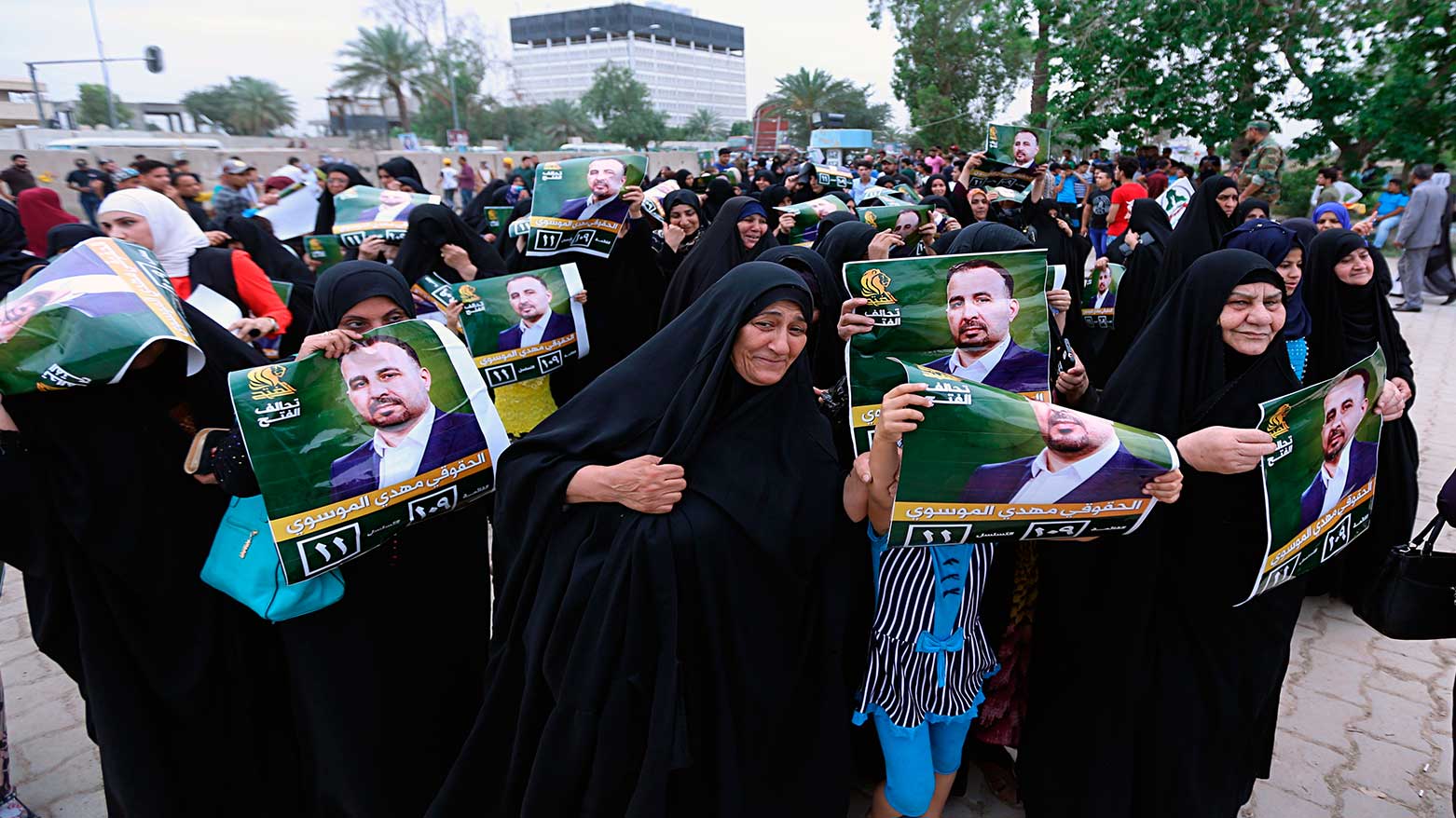Iraq’s November Elections: The Rise of Seasonal Political Parties
A key concern is that many of these parties have little ground presence or public agenda, often emerging only before elections to serve as bargaining chips or tools for gaining power.

ERBIL (Kurdistan24) — The emergence of "seasonal" political parties in Iraq, a phenomenon marked by a surge in the number of political entities, has raised serious concerns about the future of the country's political landscape, according to experts and legal observers. As of today, Iraq is home to a staggering 326 registered political parties, a figure that many view not as a sign of political health but as a reflection of legislative chaos and disarray. This has led to fears of further fragmentation of Iraq’s political system, threatening the country’s democratic process.
According to EREM News, political analysts argue that the sheer volume of political parties in Iraq is a result of lax regulations that allow the formation of parties with minimal requirements. A key concern is that most of these parties lack a substantial presence on the ground or any meaningful public agenda. Many of these parties only appear in the lead-up to elections, serving primarily as bargaining chips in political negotiations or tools for gaining positions of power.
Mohammad Al-Tamimi, a political researcher, stated to EREM News that the proliferation of parties is not indicative of political pluralism but a direct consequence of weak laws that allow the creation of parties without real political or societal content. He explained that many of these parties are simply the product of personal or family interests, later becoming leverage for political alliances or gaining government positions. Al-Tamimi noted that some individuals even register multiple parties to manipulate the election process, benefiting from the ease of legal requirements, such as the low number of founding members and the lack of oversight in areas such as funding and organizational structure.
The current laws governing political parties in Iraq only require the collection of 2,000 signatures to form a party, without necessitating the submission of a detailed political program, proof of geographical reach, or transparent funding plans. This loophole has enabled the registration of numerous parties that lack clear political or social objectives, further diluting the democratic process. Legal expert Musadq Adel pointed out that the law needs a drastic overhaul, suggesting that the minimum number of members required to form a party should be raised to at least 10,000 to curb the current excess.
According to Iraqi legal experts, the Independent High Electoral Commission (IHEC), which is tasked with registering parties, has proven ineffective in curbing this issue. Its role is limited to party registration without monitoring their activities or evaluating their performance. Furthermore, it has failed to enforce measures for holding parties accountable for not participating in elections or failing to disclose financial information.
Concerns are growing that the large number of political entities will undermine the electoral process, leading to fragmented votes and weakening the formation of cohesive political blocs. This would, in turn, result in a fragmented parliament driven more by deals and negotiations than by meaningful policy debates and electoral programs.
However, supporters of political pluralism argue that this trend should not be seen as a problem, but rather as a manifestation of political freedom that must be preserved. They believe that a natural political sorting process will take place at the ballot box, with parties that possess genuine popular support eventually rising to the top, while those without backing will fade away.
The situation in Iraq, however, starkly contrasts with neighboring countries such as Turkey, where the number of active parties is limited to just a few dozen, and similar trends are observed in Jordan and Lebanon. This discrepancy highlights the structural problems in Iraq's political system and the need for a review of the legal framework that has enabled the proliferation of so many superficial entities.
Experts are now calling for a significant reform of Iraq's party laws. They believe that the solution lies not just in reducing the number of parties, but in creating a more balanced law that ensures the seriousness and legitimacy of political entities while still protecting the right to free association. Lawmaker Raed Al-Maliki has argued that the current election law favors large, established parties, leaving little room for new or smaller parties to compete fairly. Despite the approaching elections, the Iraqi parliament has yet to take meaningful steps to amend the law.
Al-Maliki also expressed concerns about the misuse of government resources during campaigns, particularly through social welfare programs and land distribution, which he believes undermine the principle of equal opportunity and weaken the ability of new parties to compete effectively.
The ongoing debate highlights the pressing need for legislative reforms to safeguard Iraq's democratic process and prevent the political system from becoming fragmented by opportunistic, short-lived political entities.
